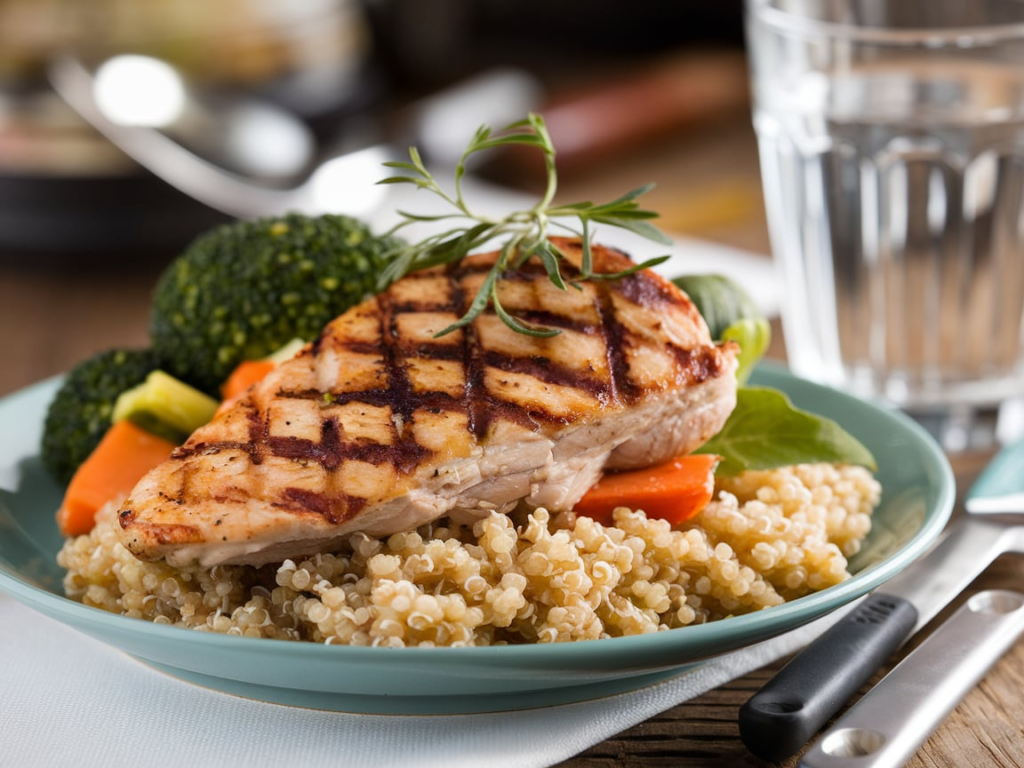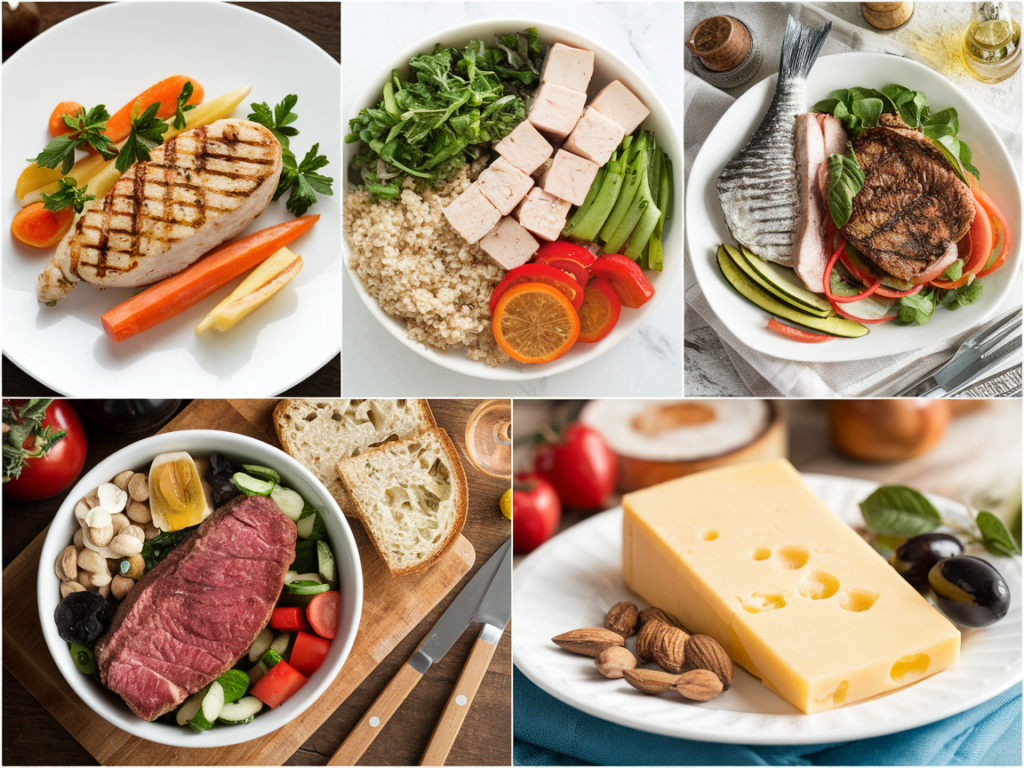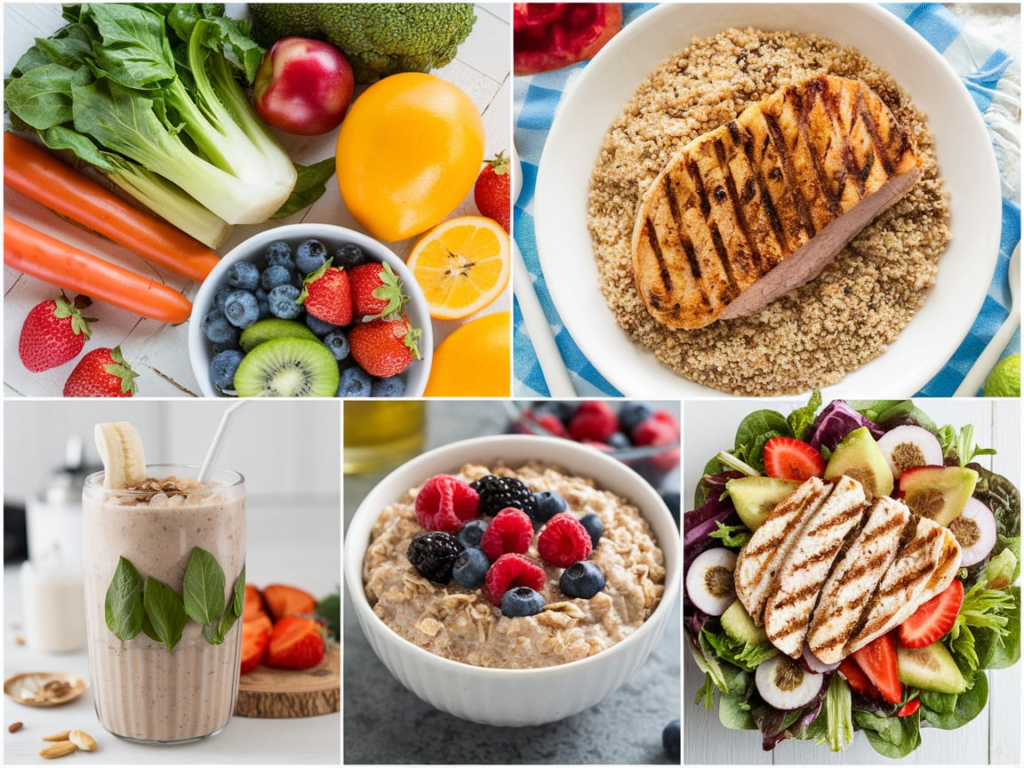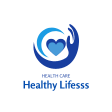Nutrition and Diet: Your Ultimate Guide to Healthy Eating

"Healthy eating is a lifestyle, not a diet. Start your journey today!"
Maintaining a balanced diet is crucial for overall health and well-being. With so much information available, navigating the world of nutrition can be overwhelming. This article will provide you with practical healthy eating tips, meal plans, and insights into popular diets like keto and veganism.
Understanding Nutrition

Nutrition refers to the intake of food in relation to the body’s dietary needs. Proper nutrition is vital for growth, development, and maintenance of health. It includes macronutrients (carbohydrates, proteins, fats) and micronutrients (vitamins and minerals).
Macronutrients
- Carbohydrates: The body’s primary energy source. Opt for whole grains, fruits, and vegetables.
- Proteins: Essential for muscle repair and growth. Include sources like lean meats, beans, and nuts.
- Fats: Necessary for hormone production and nutrient absorption. Focus on healthy fats from avocados, olive oil, and fish.
Micronutrients
Vitamins and minerals play critical roles in bodily functions. Incorporating a variety of colorful fruits and vegetables can help ensure you get a broad spectrum of these nutrients.
Healthy Eating Tips

- Balance Your Plate: Fill half your plate with fruits and vegetables, one-quarter with lean protein, and one-quarter with whole grains.
- Stay Hydrated: Drink plenty of water throughout the day. Limit sugary drinks and sodas.
- Plan Your Meals: Meal planning can help you make healthier choices and save time during busy weeks.
- Mindful Eating: Pay attention to hunger cues and eat slowly to savor your food.
- Limit Processed Foods: Minimize the intake of high-sugar, high-sodium, and highly processed foods.
Meal Planning
Sample Meal Plan
Breakfast:
- Overnight oats with chia seeds, topped with fresh berries and a drizzle of honey.
Snack:
- A small handful of mixed nuts and an apple.
Lunch:
- Quinoa salad with chickpeas, cucumber, cherry tomatoes, and a lemon-olive oil dressing.
Snack:
- Carrot sticks with hummus.
Dinner:
- Grilled salmon, steamed broccoli, and sweet potato.
Dessert (optional):
- Greek yogurt with a sprinkle of cinnamon.
Popular Diets

1. Ketogenic Diet
The keto diet is a high-fat, low-carbohydrate diet designed to put the body into ketosis, where it burns fat for fuel instead of carbohydrates.
Key Principles:
- High fat (70-75% of daily calories)
- Moderate protein (20-25%)
- Very low carbohydrates (5-10%)
Benefits:
- May aid in weight loss.
- Can improve blood sugar control.
Considerations:
- May lead to nutrient deficiencies if not properly managed.
- Not suitable for everyone; consult a healthcare provider before starting.
2. Vegan Diet

A vegan diet excludes all animal products, focusing instead on plant-based foods.
Key Principles:
- Emphasizes fruits, vegetables, grains, nuts, and seeds.
- Avoids meat, dairy, eggs, and honey.
Benefits:
- Associated with lower risks of heart disease, high blood pressure, and certain cancers.
- Can promote weight loss and improve digestion.
Considerations:
- Important to ensure adequate intake of protein, vitamin B12, iron, and omega-3 fatty acids.
Conclusion
Adopting a healthy diet can be a rewarding journey. Whether you choose a specific diet like keto or veganism, the key is to focus on whole, nutrient-dense foods. Remember to listen to your body and make adjustments as needed. With planning and mindfulness, you can enjoy a balanced diet that supports your health and well-being.
FAQs
1. What is a balanced diet? A balanced diet includes a variety of foods: fruits, vegetables, whole grains, lean proteins, and healthy fats, providing all essential nutrients.
2. How can I start meal planning? Begin by choosing a day to plan meals for the week. Create a list of recipes, then shop for ingredients. Prep meals in advance to save time.
3. What are the benefits of a ketogenic diet? The keto diet may promote weight loss, improve blood sugar control, and increase energy levels by encouraging the body to burn fat for fuel.
4. Is a vegan diet healthy? Yes, a well-planned vegan diet can be healthy and nutritionally adequate, reducing the risk of chronic diseases, but it’s important to ensure proper nutrient intake.
5. How can I stay hydrated? Aim to drink at least 8 cups of water daily. Include herbal teas and water-rich fruits and vegetables to help meet your hydration needs.
6. What are some healthy snacks? Healthy snack options include fruit, nuts, yogurt, vegetable sticks with hummus, and whole grain crackers with cheese.
7. Should I avoid all processed foods? Not all processed foods are unhealthy. Focus on minimizing highly processed items high in sugar, sodium, and unhealthy fats. Choose minimally processed options when possible.
8. How can I eat mindfully? Practice eating slowly, savoring each bite, and paying attention to hunger and fullness cues to enhance your eating experience.




